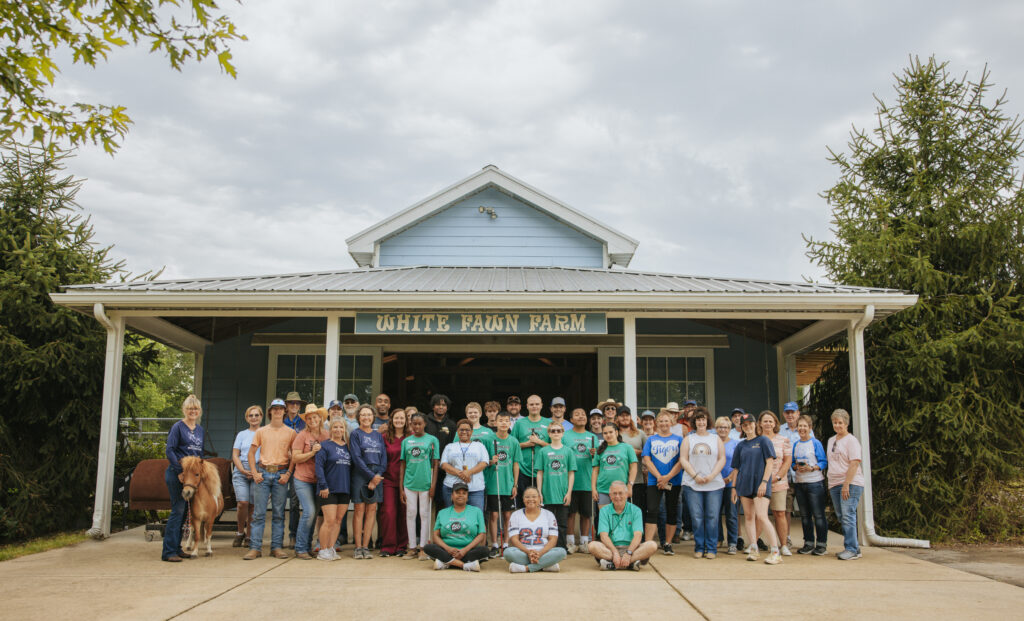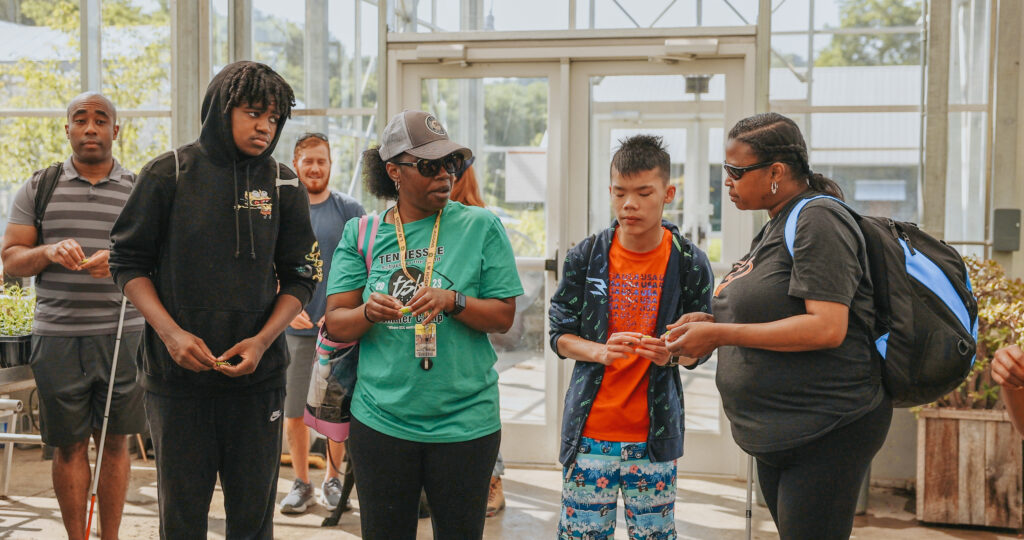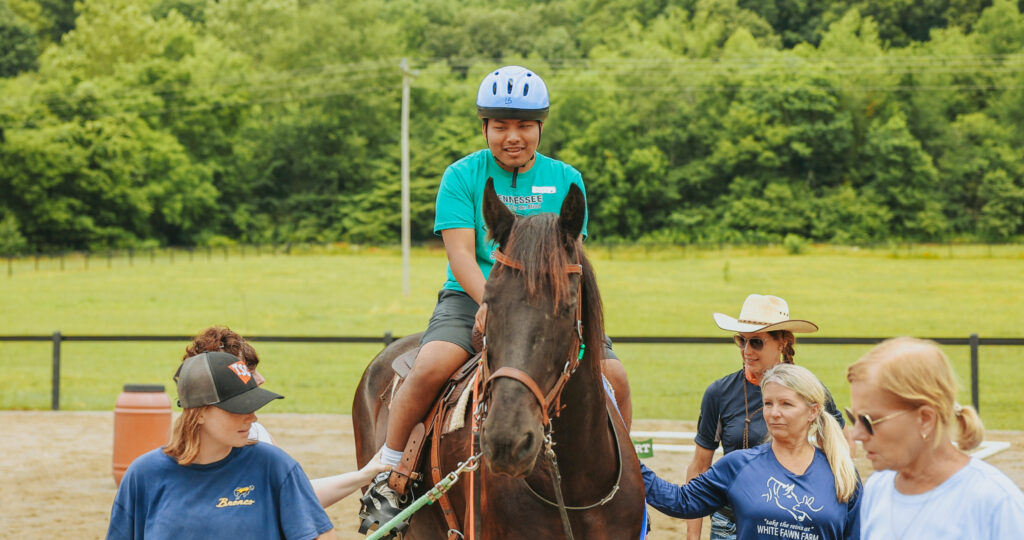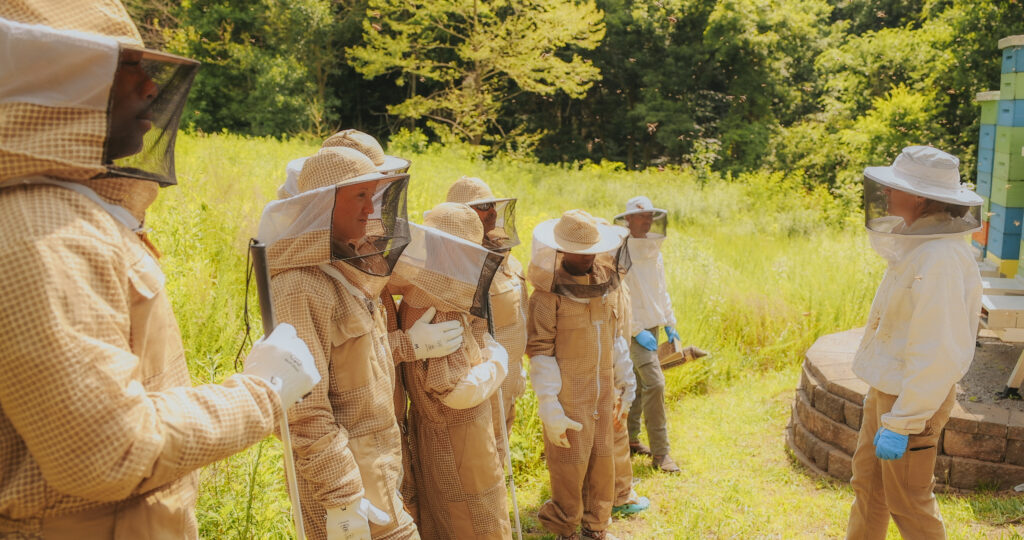Students ages 14-21 participated in horsemanship, beekeeping and other activities at the school’s annual sports camp.

As athletic director of Tennessee School for the Blind, Andy Joiner is responsible for overseeing sports activities during the school year and at summer camps. A member of the North Central Association of Schools for the Blind (NCASB), TSB participates in track and field, goalball, wrestling, cheerleading, swimming and public speaking (also known as forensics).
Each summer, the school hosts a weeklong sports camp. This year, the camp was held June 12-16 and featured blind-specific sports on and off campus for students ages 14-21. Track, disc golf and other sports were introduced, and the Nashville Predators hockey team came to the camp for street hockey. The idea is to promote socialization, teamwork and other skills. TSB also offered a discovery camp for high school students who don’t attend the school, which took place a week earlier.
Sports can be a big confidence-booster for students, especially those who have recently lost their vision.
“I see it every year,” said Joiner, who has been at TSB for 26 years and coordinates the camp along with Christy Williams, a science teacher. “We get a student who all of a sudden loses their vision from some kind of an accident. Just being able to see that person run… They say, ‘oh, I remember how to do that now’. That helps them in the classroom as well.”
For the first time, this year’s sports camp offered farm and ranch activities including horseback riding, horsemanship instruction, gardening and beekeeping. Over a two-day period, campers visited Southall Farm and Inn and White Fawn Farm for a full ranch-style experience.

Southall, a luxury spa resort located near Nashville, contains 325 acres of vast farmland featuring greenhouses, orchards, crops and gardens. Blending old and new traditions with a healthy dose of southern hospitality, it transports visitors to a simpler time when life was lived at a slower pace.
TSB students were given the opportunity to experience beekeeping. Dressed in full protective gear, they learned about different types of waxes, tasted several types of honey and even held frames bees are kept in.
Campers also went fly-fishing, canoeing and kayaking at a nearby lake and visited the greenhouses and orchards, sampling the various fruits and vegetables growing there.
“We ate and ate,” said Williams, who just completed her 10th year at TSB. “They fed us well. Most of the food that is served, they grow it on their land. The kids were able to touch the seeds and different types of vegetables. That was a good experience.”
Another day was devoted to horseback riding and horsemanship at White Fawn. Located in Thompson’s Station, the farm and equine therapeutic riding center provides activities for people with physical and mental disabilities.

Upon arrival at White Fawn, the TSB students were taught the basics of horse care before getting the chance to ride. Rain prevented them from going out on the trail, but they were able to canter around a ring. Later in the day, students were given an art project allowing them to create whatever they chose using horseshoes and beads.
“They had three stations for our students: maintaining the horse, riding the horse and the art project,” Joiner explained. “It was a lot of hands-on, which our kids really need. They were able to understand the different parts to a horse.”
The Foreseeable Future Foundation has sponsored a number of similar ranch camps for blind schools and organizations including Camp Abilities Tucson and Perkins School for the Blind. The foundation’s CEO, Griffin Pinkow, is a strong advocate for teaching horsemanship to blind youth all over the country. Joiner recalls getting a phone call from Pinkow about sponsoring a ranch camp in the area.

“He wanted to help the school. We started talking about it. He met some people from Southall, and they had us come out there. He also had a connection with White Fawn Farm.”
Williams was impressed by the enthusiasm and curiosity the students expressed during the two days of ranch experiences.
“All the kids loved it. They asked such good questions. They were attentive and engaged. It really made me smile because they were asking questions I didn’t expect them to ask. I don’t think any child walked away feeling like they missed out on something.”
The feedback and lasting memories have certainly planted the seeds for future ranch trips.
